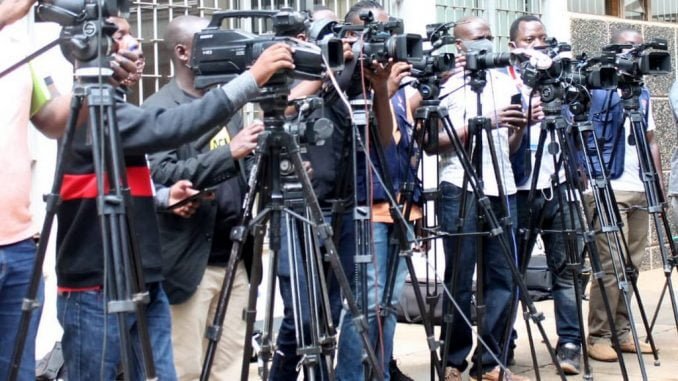
Kampala, Uganda | URN | The rule of law is a precious resource that protects free expression, press freedom, and the rights of journalists around the world.
But that law is increasingly being abused to curtail media freedom and silence critical voices according to a new study by the Thomson Reuters Foundation.
The study released on Thursday 20, April 2023 says among the many and wide-ranging threats to media freedom that have proliferated in recent years is the mounting number of legal attacks on journalists and journalism, often used to silence public interest reporting and exert control.
It found that an array of sweeping and repressive legislative, regulatory, and other legal threats to journalists are stifling their ability to operate freely and independently, with grave repercussions for the journalists themselves and for the audiences they serve.
The report “This weaponization of the law” says the COVID-19 pandemic and the invasion of Ukraine – are being used in myriad ways and by different players, but with the same desired outcome: the criminalization of media practitioners to suppress scrutiny and to seize power.
The Thomson Reuters Foundation says media freedom organizations have documented record numbers of imprisoned reporters worldwide.
A staggering 363 were jailed at the end of 2022, according to the Committee to Protect Journalists (CPJ), while Reporters Without Borders – which uses a different methodology – recorded 533.
While only a handful of countries jail journalists in large numbers, legal attacks are happening everywhere, including in the world’s leading democracies. These threats range from simple harassment to “lawfare” – systematic legal action intended to stifle critical reporting and suppress fundamental rights.
The report found that defamation remains one of the most serious threats to journalists. It says defamation laws, both criminal and civil, continue to be used all over the world to prevent open public debate and shield powerful individuals from legitimate criticism.
The online expression has become a new target for criminal defamation, aligning with a growing trend to criminalize speech on the internet through defamation and insult provisions that are integrated into cybersecurity, anti-terrorism, or hate speech legislation.
There has also been a rise in civil defamation, which has the potential for excessive damages.
This, in turn, encourages self-censorship or the automatic publication of an apology to mitigate the risk of a possible lawsuit.
In Uganda, the Daily Monitor has just paid three hundred million shillings to President Museveni in settlement of a defamation suit arising from an article during the COVID-19 pandemic. Mr. Museveni donated the money to his Party NRM.
This troubling development dovetails with the reversal of a more positive trend: the decriminalization of defamation laws, which many countries moved towards during the 2000s and early 2010s.
This report shows that a number of countries have reintroduced criminal defamation offenses, expanded or increased penalties under existing laws, or boosted the enforcement of long-dormant laws, in an effort to target journalists.
Additionally, the report reveals defamation as the preferred tool for those deploying Strategic Litigation Against Public Participation (SLAPPs), as these charges are increasingly used simply to intimidate and exert undue pressure on the media, regardless of the outcome.
Governments around the world are strengthening speech-related crimes, amid growing efforts to shield those in power from criticism.
Read Also: Press freedom in Uganda: Thumbs up for NRM or bold journalists?
In the last five years, at least 43 states have enacted or amended laws to expand and increase penalties for defamation, anti-terrorist or extremist activity, national security, false news, public disorder, and cybercrimes – laws that are frequently misused to prosecute journalists.
In the majority of cases, laws were expanded and tailored to better target speech in the context of electoral or constitutional crises, with the COVID-19 pandemic propelling many of these legislative changes.
The report shows that “catch-all” national security or public order offenses are becoming a preferred tool to prosecute and secure the conviction of journalists.
Often, these offenses punish expression based on the possible impact it could have on national security and public order. The laws are frequently used to suppress domestic political dissent.



